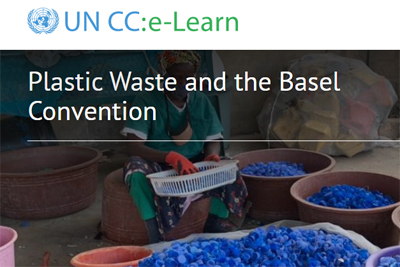The technical guidelines on the environmentally sound management of plastic waste are currently being updated. An ESM Toolkit has been developed by the expert working group on environmentally sound management (ESM) to promote implementation of the ESM framework adopted at COP-11 in 2013.
The plastic waste crisis requires both global action and initiatives at the local level. These videos spotlight the inspiring outcomes of three pilot projects implemented in Galle City, Sri Lanka. Funded by the Norwegian Agency for Development Cooperation (Norad) and facilitated by the BRS Secretariat, the pilots were carried out by the Ministry of Environment of Sri Lanka in collaboration with the Institute for Global Environmental Strategies (IGES) and local civil society organizations.
|
|
|
|
|
Witness the transformative efforts of schools, the tourism sector, and the fishing community:
- In schools, children, teachers and parents joined forces to sample microplastics in water, clean beaches, organize video competitions and create artworks from plastic waste.
- In tourism, three hotels developed action plans to reduce single-use plastics and installed special filters in their washing machines to capture microfibers.
- In fishing communities, fishermen teamed up with volunteers to collect and repaire waste fishing nets for reuse in the fishing and agriculture sectors, ensuring unrepaired nets were responsibly disposed of.
These stories highlight practical steps toward reducing plastic waste and fostering sustainability. Watch the full series, which includes a special introduction by the Executive Secretary of the BRS Secretariat, or enjoy each video individually to discover these impactful initiatives.

|
|
As another key output of the pilot implemented in the tourism sector, a ‘Guide to Manage Plastic Waste at Small and Medium Hotels in Sri Lanka’ was developed. It offers guidance on process of reducing plastic usage by adopting sustainable alternatives and provides insights to ensure the environmentally sound management of plastic waste. The guide is primarily targeted at hotels, in particular small and medium hotels, but may also serve a as a valuable resource for other relevant entities, including from the public sector and civil society.
|
| |
|
|
|

Online course on plastic waste
An online course “Plastic Waste and Basel Convention” has been developed, thanks to generous financial support provided by the European Union and in cooperation with UNITAR. The course explains the key provisions of the Basel Convention, thereby focusing on plastic waste across its three pillars: prevention and minimization of the generation of plastic waste; environmentally sound management of plastic waste; and control of transboundary movements of plastic waste.
UPDATES:
In addition to the English version, the course is now also available in French and Spanish. Moreover, the course has now been updated to reflect recent developments and lessons learned from pilot projects. The course has been translated and updated thanks to generous financial support provided by Switzerland.
The course is now also available on InforMEA via this link.
Toolkit for the development of an inventory of plastic waste
The Plastic Waste Inventory Toolkit has been developed, thanks to generous financial support provided by the Norwegian Agency for Development Cooperation (Norad). The inventory toolkit is currently used under various technical assistance projects on plastic waste to collect baseline information in the target countries.
Toolkit
|
Download |
| Toolkit for consumption-lifespan method |

|
| Toolkit for material flow analysis method |

|